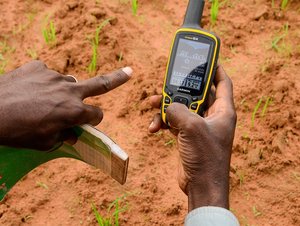Digitisation

Digital technologies hold a huge potential for poverty reduction and inclusive development in rural areas, as numerous success stories show: recommendations on crop growing and veterinary extension services for farmers, vocational training for rural youth, health and nutrition consultancy for pregnant women and young mothers, mobile banking systems for those without a bank account, the set up of early warning systems …. However, much of the potential of the new technologies still lies in the future, and inherent complexities are often underestimated. We have asked our authors to keep an eye on the practical relevance of the examples they are presenting from their work – no isolated solutions but technologies and initiatives that bear a potential for up-scaling, are (or can be) locally adapted and can above all also benefit small-scale farmers and the young generation, who are more strongly represented in Africa than in any other continent. We also asked them to demonstrate why some solutions that seem promising at first glance are doomed to fail and which areas have a lot to catch up on if the rural digitisation potentials are to be unleashed in a manner that really deserves the attribute ‘inclusive’.
- Bridging the cooling gap through digitalisation (2023)
- Meet Ethiopia’s digital agripreneur(2021)
- ‘Cellphilms’ and ‘Photovoice’ – how visual tools can help understand farmers’ adaptation to climate change(2020)
- We need more than apps (2018)
- The potential of apps to study smallholder farming systems and more(2017)
- Unleashing the rural digitisation potential(2017)
- Doing more with less(2017)
- Knowledge powers development(2017)
- How can the digital revolution benefit smallholder farmers?(2017)
- From agricultural finance to drone operations: Starting off a new generation of agripreneurs(2017)
- E-learning courses made in West Africa, for African youth(2017)
- Combining kid power and new media for agricultural extension and better health(2017)
- One for all – creating a Unified Register for Social Protection Programmes in Malawi(2017)
- The power of open data(2017)
- Privacy and data security in development projects(2017)
- Healthy scepticism is called for(2017)



